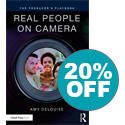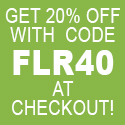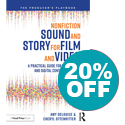Navigating career transitions is always a challenge, especially in an evolving business climate. But it’s possible to put your best brand forward in a way that allows you to pivot to a new area of work as a creative professional. In this blog post, I’ll cover four key areas for ensuring you have the ability to pivot quickly and effectively.
- Define Core Values for Your Brand
As Jendi Coursey discussed in her guest blog post here last month, customers are embracing values as a focal point in decision-making. Businesses and individuals who offer a values-first focus are more likely to get repeat business. And, I’d suggest, when you embrace a mission connected to values, you are able to develop a different pricing structure, because you are building a long-term relationship with that client or customer, not just a quick deal. When pivoting to a new market vertical, or to an entirely new business model (aka, virtual workflow, etc.), you are better positioned to move fast if that mission focus is still driving your decision-making. So, for example, in my business we pivoted from creating content for live events to helping our clients produce virtual experiences. While the end product was different, our core values of quality, a focus on authentic storytelling, and audience impact were still at the heart of our work.
- Conduct a Personal SWOT Analysis
Now is a great time to do a personal SWOT assessment—Strengths, Weaknesses, Opportunities and Threats. If you need more information on how to get started, check out this article from SCORE—the Service Corps of Retired Executives, a volunteer organization that allows experienced retired executives mentor younger business owners. You can use this SCORE Checklist to help you narrow down the questions to get at your SWOT analysis. The benefit of conducting a periodic SWOT is to help you define your brand, create marketing tools that position your business or service appropriately, or help you define a new business angle, product or service.
- Develop Big Hairy Audacious Goals
One of my favorite takeaways from the book “Built to Last: Successful Habits of Visionary Companies” by James Collins and Jerry Porras is the “BHAG”—which stands for Big Hairy Audacious Goals. Every entrepreneur needs these goals to ensure we are looking past the day-to-day to some significant long-term objectives. And even if you work on staff inside a company, it’s worth targeting your BHAG to be sure you have a life-changing target that can drive your professional development plan. I keep my BHAGs on a white board over my desk, which also contains all my company’s ongoing projects and proposals. By having my BHAG there–both business and personal–I’m mindful of not losing sight of my long-term goals and strategies in the flurry of daily work.
- Tips for Transition Marketing
As the market transitions from virtual to hybrid and then to frankly who knows what, it’s important to be mindful of how your portfolio, your social media, and your resume position you for what’s next. Be sure your social channels are aligned with where you want to go. (So often I see headshots with sexy poses or pictures of beloved animals, which don’t really help me know who this person is professionally.) If you are job-hunting as a gig worker, be sure to highlight your soft skills when posting on platforms like LinkedIn. These include your ability to work with a team, your ability to use new tools or software to get the job done efficiently; and your willingness to manage your own time to deliver quality outcomes. Software and hardware tools and certifications are great, but these change constantly. It’s your work ethic and ability to be function as part of a team that makes you hire-able again and again.
The future of work post-Covid is still evolving. The best we can do is be ready for it.
Amy DeLouise is an entrepreneur, digital storyteller, and trainer. Check out her panel of creatives who pivoted their careers during the Post|Production Online conference April 10-13.





